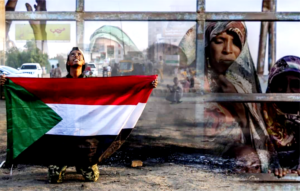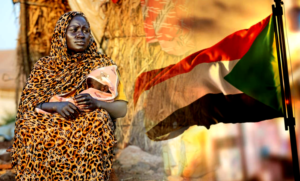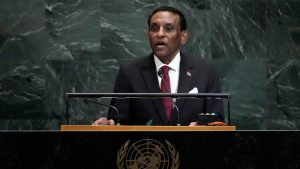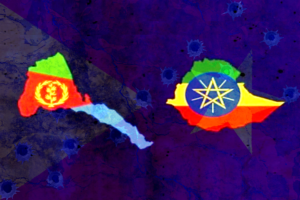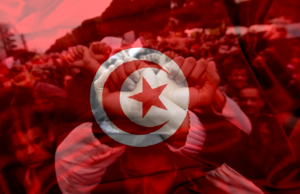Sudan Accuses UAE of Deploying Foreign Mercenaries in Ongoing Civil War
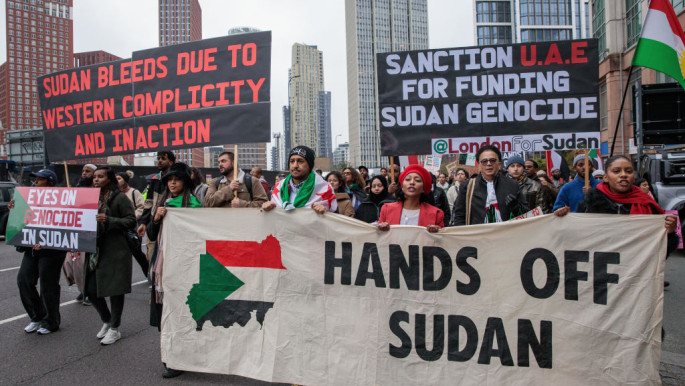
Sudan’s Government (SAF) has publicly accused the United Arab Emirates (UAE) of:
-
Supplying weapons and logistical support to the RSF.
-
Allegedly deploying Colombian and other Latin American mercenaries to fight on RSF’s behalf.
![]()
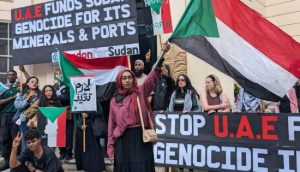
The Sudanese government has accused the United Arab Emirates (UAE) of deploying foreign mercenaries, including Colombians and fighters from neighboring African countries, to bolster the Rapid Support Forces (RSF) in the country’s ongoing civil war against the national military.
In a statement released on Monday, Sudan’s Foreign Ministry alleged that it possesses “irrefutable evidence” that mercenaries from Colombia and other unspecified African nations have been recruited, financed, and deployed by Emirati authorities to support the RSF. However, the statement did not provide specific proof to substantiate the claim, nor did it name the neighboring countries allegedly involved.
“This unprecedented phenomenon poses a serious threat to peace and security in the region and across the continent,” the ministry said. It further claimed that hundreds of thousands of mercenaries had been hired across Africa to take part in the conflict, describing the development as a dangerous escalation with far-reaching consequences.
UAE Denies Allegations
In response, the UAE’s Ministry of Foreign Affairs issued a firm denial, categorically rejecting the accusations. In an emailed statement to the Associated Press, the ministry stated that the UAE “emphasizes that these claims are merely attempts to derail the peace process and evade the moral, legal, and humanitarian obligations to end the conflict and pave the way for a transitional process that reflects the aspirations of the Sudanese people for security, stability, and development.”
The UAE reiterated its non-involvement in Sudan’s internal conflict and stressed its commitment to regional peace. There has been no official response yet from the Colombian government regarding the alleged involvement of its nationals.
A War Fueled by Regional Tensions
The civil war in Sudan erupted in April 2023, igniting in the capital city of Khartoum before engulfing much of the country. The conflict stems from a power struggle between the Sudanese Armed Forces (SAF), led by General Abdel Fattah al-Burhan, and the RSF, commanded by Mohamed Hamdan Dagalo, widely known as Hemedti.
What began as a political dispute escalated into full-scale warfare, resulting in one of the worst humanitarian crises in recent African history. More than 40,000 people have been killed, over 12 million displaced, and millions more pushed to the brink of famine, according to international humanitarian agencies.
For months, Sudan has accused the UAE of covertly supporting the RSF by supplying weapons and logistical assistance, claims that has been consistently denied by Emirati officials.
Amnesty Report Adds to Controversy
In November, Amnesty International reported that Sudanese military forces had seized armored vehicles allegedly manufactured in the UAE and fitted with French-made defense systems. The Emirati government dismissed the report, claiming it was part of a “coordinated disinformation campaign aimed at undermining our foreign policy, regional role, and humanitarian efforts.”
Despite mounting accusations, concrete evidence proving direct Emirati involvement remains elusive. Analysts suggest that Sudan’s latest claims may be part of a broader diplomatic effort to rally international pressure on the UAE and delegitimize support for the RSF.
Human Rights Violations on Both Sides
Both the Sudanese military and the RSF have been implicated in widespread human rights abuses since the outbreak of hostilities. Independent investigations and eyewitness accounts have documented war crimes, including ethnic cleansing, extrajudicial killings, sexual violence, and attacks on civilians, including children.
The international community has repeatedly called for a ceasefire and a return to a transitional democratic process. However, peace efforts have stalled amid continued fighting and entrenched foreign interests.
A Conflict with Global Implications
Sudan’s civil war is increasingly seen not only as a national tragedy but also as a flashpoint for regional instability, drawing in external actors and creating a fertile ground for mercenary warfare. The allegations against the UAE, whether substantiated or not, highlights the complex and opaque nature of foreign involvement in the conflict.
As the war grinds on, with no clear end in sight, the stakes remain high, not just for Sudan’s future, but for the security of the wider Horn of Africa and the Gulf region.


